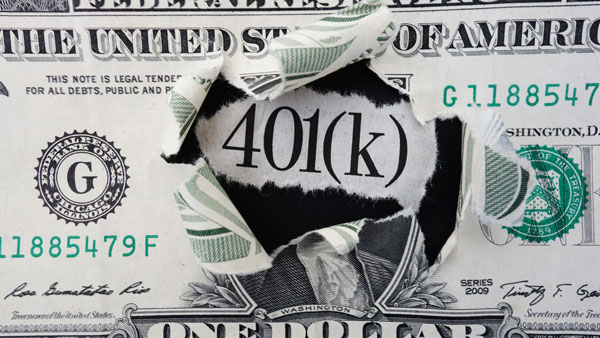A hardship withdrawal from your current employer's 401(k) may be an option if you require a large quantity of money and don't expect to be able to pay it back. It's tough to make withdrawals if you're under the age of 5912 without the hardship clause. , But you may take money out of your account to satisfy an "immediate and heavy financial necessity," such as paying for medical or burial expenses or preventing foreclosure on your house, using a hardship withdrawal. Check with your employer to see whether this is an option before you start withdrawing from your retirement account.
Acceptance of a Hardship Withdrawal
You should use caution even if your company provides this benefit. As a general rule, financial consultants advise avoiding taking money from your retirement fund unless it is necessary. As a result of the new laws easing hardship withdrawals, some advisors are concerned that retirement accounts would be raided instead of used to their full potential. To qualify for a hardship withdrawal, the Internal Revenue Service (IRS) requires an "immediate and heavy financial necessity."
How Much Money Can You Take Out?

Only the amount "required to meet the financial necessity" can be withdrawn at once. However, the amount that must be paid in taxes and penalties for the withdrawal might be included.
With the most recent changes, you can now withdraw a more significant percentage of your 401(k) or 403(b) plan's value. Previously, if you needed to take a hardship withdrawal from your retirement plan, you could only take the money you had contributed. For the following six months, you would not be able to contribute to your retirement plan again if you made a hardship withdrawal.
Hardship Withdrawals: How Much Will They Cost You?
When it comes to investing for retirement, hardship withdrawals might hurt your finances. You're taking the money you'd planned to save for the years after you stop receiving a paycheck and forfeiting the opportunity to put it to good use now while it's still appreciated.
Taxes on the amount you remove will be due and will be at your current rate, which may be more than what you would have paid if you had taken the money out in retirement. If you are under 5912, you will almost certainly be penalized 10% of the amount you withdraw.
401(k) Distribution Alternatives

If you're at least 5912 years old, you may take money out of your 401(k) without incurring a tax penalty, regardless of whether you're experiencing financial difficulty. In addition, account holders of any age may be able to borrow money from a 401(k) provided their employer enables it (k).
Borrowing from your 401(k) is generally discouraged by financial counselors, mainly because doing so puts your retirement savings at risk. On the other hand, a loan is an option worth considering if you feel you'll be able to pay back the loan in a timely manner.
Aside from that, the CARES Act doubles the loan ceiling from $50,000 to $100,000. By not making payments, the loan becomes a withdrawal, and you will be subject to the same penalties as if it had started as one.
How To Prove 401(k) Hardship?
Taking a distribution from your 401(k) does not need to show financial difficulty (k). In other words, you don't have to show proof of your difficulties to your employer. Remember to save any receipts or other proof of your financial difficulties.
When Is The Right Time To Take an Early 401(k) Distribution?
Taking an early withdrawal from your 401(k) should only be the last option because of the 10% penalty. Participants who take an early withdrawal with a penalty are generally in dire financial difficulties because penalty-free withdrawals are available for various financial problems and conditions.
Withdrawals might be done for a variety of reasons, according to Stiger. All kinds of expenses, from tuition to a spouse's funeral costs, the objective is that payouts be utilized for more excellent, unforeseen expenses like medical crises, avoiding foreclosure on the property, and keeping food on the table at the wrong moment."
Making an early withdrawal can make sense if you're eligible for a penalty-free exception, the Rule of 55, or the SEPP exemption. However, checking out your other possibilities first is a good idea. Here are 10 quick and easy methods to acquire cash.
The Verdict
Most 401(k)s allow for non-distressed in-service withdrawals in around two-thirds of cases. However, this alternative does not give instant funding for a desperate need. Put another way, and the withdrawal is permitted so the money can be transferred to a different investment vehicle. Consult with a tax or financial expert to see if this option suits your situation.



